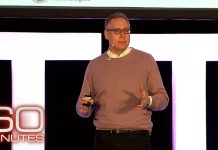Many dream of owning their own home, and thanks to huge financial incentives in the rich world many have been able to so. But government policies to encourage home ownership were a huge mistake. Read more here: https://econ.st/2v6sHo6
Click here to subscribe to The Economist on YouTube: https://econ.st/2xvTKdy
For more from Economist Films visit: http://films.economist.com/
Check out The Economist’s full video catalogue: http://econ.st/20IehQk
Like The Economist on Facebook: https://www.facebook.com/TheEconomist/
Follow The Economist on Twitter: https://twitter.com/theeconomist
Follow us on Instagram: https://www.instagram.com/theeconomist/
Follow us on Medium: https://medium.com/@the_economist
source






EXCELLENT
The fact that there is already an excessive amount of demand awaiting its absorption, despite how everyone is frightened and calling the crash, is another reason why it is less likely to occur that way. 2008 saw no one, at least not the broad public, making this forecast, as I'll explain below. The ownership rate was noted to have peaked in 2004 in the other comment. Having previously peaked in the second quarter of 2020, we are currently at the median level. Between 2008 and 2012, it dropped by 3%, and by the second quarter of 2020, it had dropped from 68 to 65.
What a load of nonsense, the thing that ruined the housing market was the central banks of industrial countries, they don’t include inflation on asset (house) prices in their calculations, so instead of their figures being accurate they where well below what inflation actually was. They then lower interest rates to prop up this false figure which caused high inflation in asset prices.then inflating prices discourage building of new homes because why would you take that risk when you can just sit back and watch the capital gains roll in.
No don't buy your own house, that's a bad idea, just let someone else buy two houses, so can pay them to live in one of them instead. it's for the economy you see.
All houses are owned ffs
As a Romanian, I’m aware that the economy isn’t doing great and lots of people are struggling, but I think the situation would be much worse if the rate of home ownership was lower.
I mean imagine having to pay rent, on top of already existing challenges, and living in fear of getting kicked out by a landlord.
Pretty much everyone I know owns the home they live in.
I paid for mine upfront, no mortgage. I also lived mostly with my parents for 27.5 of the first 30 years of my life.
Many people I know have similar experiences: living with parents, save money, buy a home upfront, no mortgage.
Some people do take on mortgages, sometimes to buy additional homes for when their children grow up.
Very few rent, and even then it’s only temporarily, while they’re getting settled in a new city, or going through a divorce or some other specific circumstance.
The culture doesn’t encourage renting forever, especially not starting a family without owning at least one home.
We do have a pretty peculiar national history, including a communist dictatorship which wasn’t fun at all, so I’m not sure whether there are any lessons to be learned for how a “normal” country would get to where we are in terms of home ownership.
You can be part of a vibrant community WITHOUT owning the land underneath yourself. Its called social capital.
In fact collective community ownership is being used to prevent the rich and wealthy from making people homeless, and gentrifying places for profit.
The only way to make renting attractive is to heavily regulate the market like in Switzerland, and most governments don't have the courage to risk angering their wealthy donors – especially in an sociopathically selfish capitalist societies like the United States and Great Britain.
It's beyond nonsensical to state that homeownership and renting ends up costing roughly the same, and is therefore roughly equivalent, when the former is just an expense and the latter is a long term investment in an appreciating asset.
Haha blaming owners blames banks and dynasties who runs the banks they the ones who created mortgage bond etc
Singaporeans don't own their homes. They have a 99-year lease on an apartment.
"I know our current policies mean that you'll never be able to afford a house, but have you considered giving up and accepting it?"
Home ownership didn’t bring the banks down! The banks greed and fraud did .
I definitely don't like how the spun it as "RENTING BAD" when all the experts they interviewed said it just comes down to personal preference and situation, since both renting and buying have similar costs. That said, I still prefer renting because it usually involves a smaller space, and as someone living alone with no desire for a roommate or significant other, I feel like I have more control over my living space. Whenever I house-sit for my parents, I always feel like I have no control over the place, and their house isn't even that big. I also like being right in the center of my town, where houses mean you generally have to live further out. It also makes things more simple for me, since my rent includes all utilities except internet, so most of my monthly expenses go toward rent, internet, and groceries. Little goes to much else. It's easy to know where my money is going that way. Totally have respect for people who want to buy, but honestly not for me 🙂
I guess moving from flat to flat in my eighties is healthy for economy👍
"You will own nothing, and be happy"
Heading for hyperdeflation …
Funny how the same people who say "homeownership makes no sense" are the same interest groups that want to push large residential rental projects. . . . The level of BS with this piece is amazing.
With renting you have no long term security so nice try
That's why they call it the American Dream, because you have to be asleep to believe it
You can do up your own home; not the case with renting. You have something to show for your mortgage payments at the end of the day. Equity or a house which you can pass on to your kids. Or use the equity to help your kids onto the house ladder. Don’t know what this propaganda is aimed at?
Everyone who bought their own home and kept it has made more profit each year than their salary! The economist is peddling the propaganda of Klaus Schwab and his WEF!
This feels like land lord propaganda
I always love the economist but I’m disappointed in this analysis.
Home Ownership makes a big difference. Corporations can raise rents even more easily when they own more of the properties.
Comments are closed.